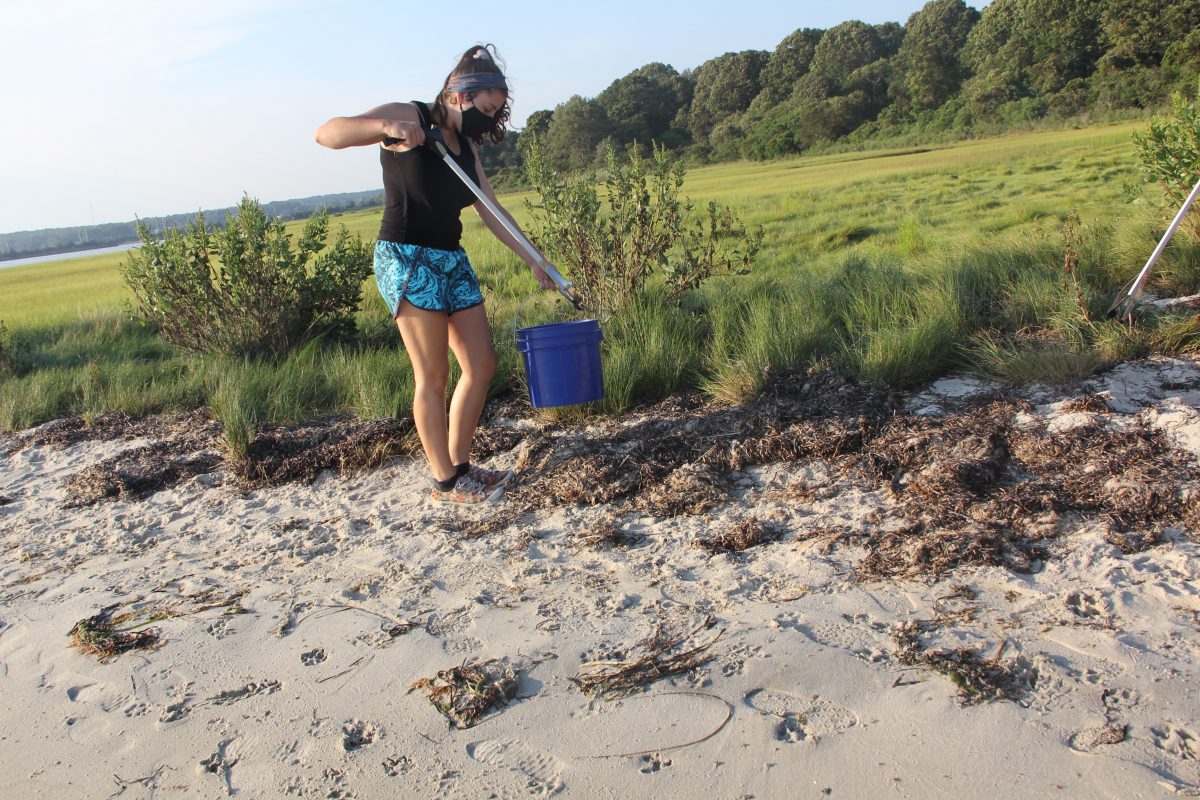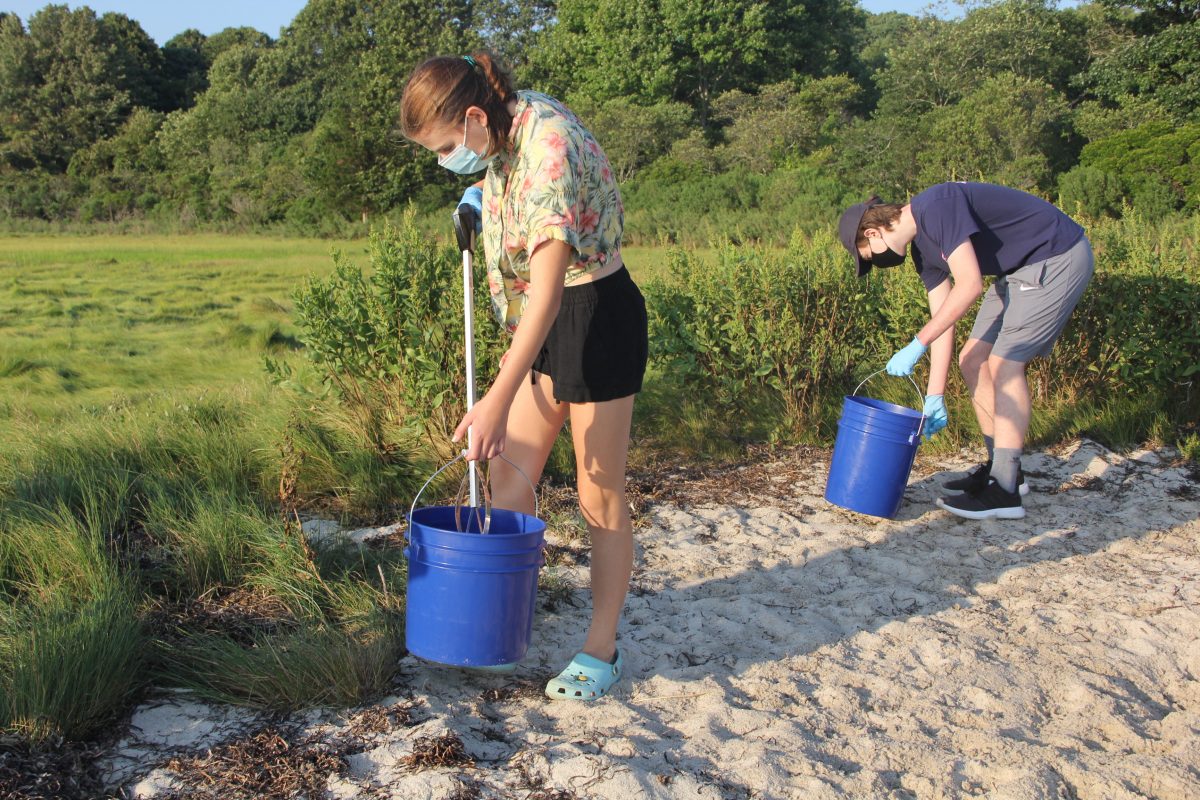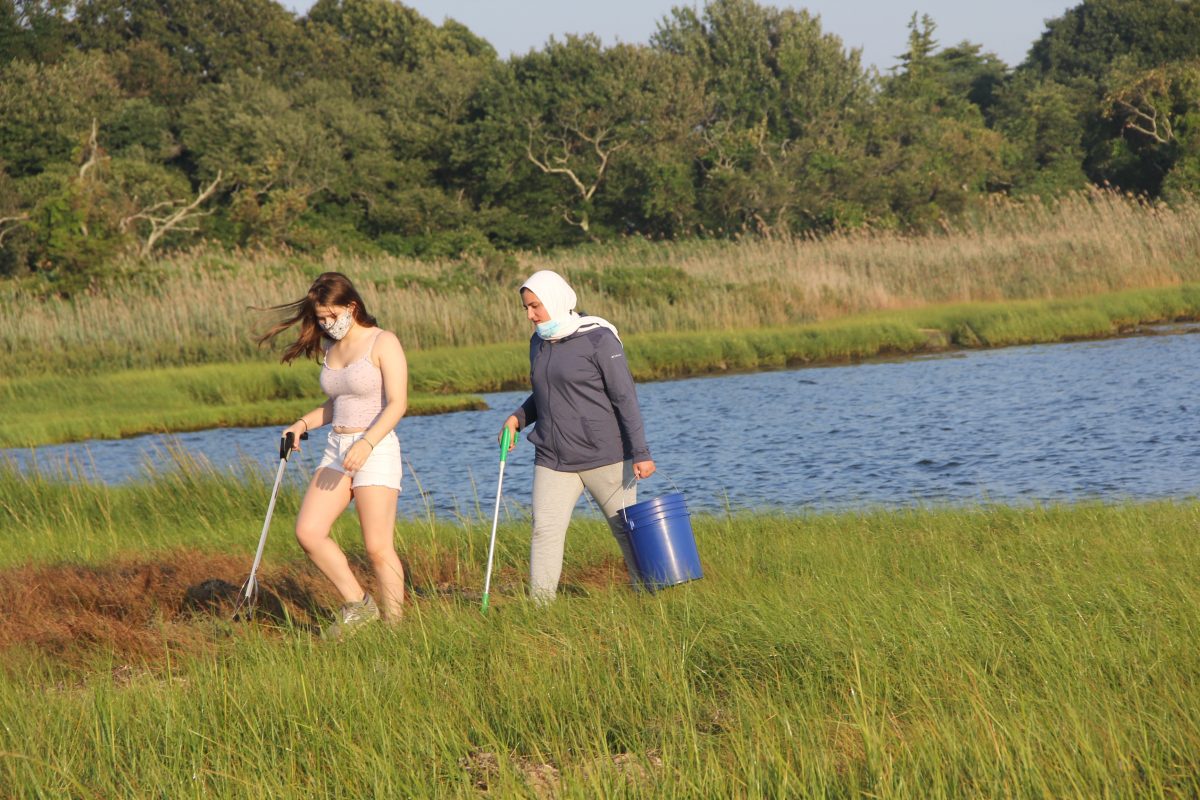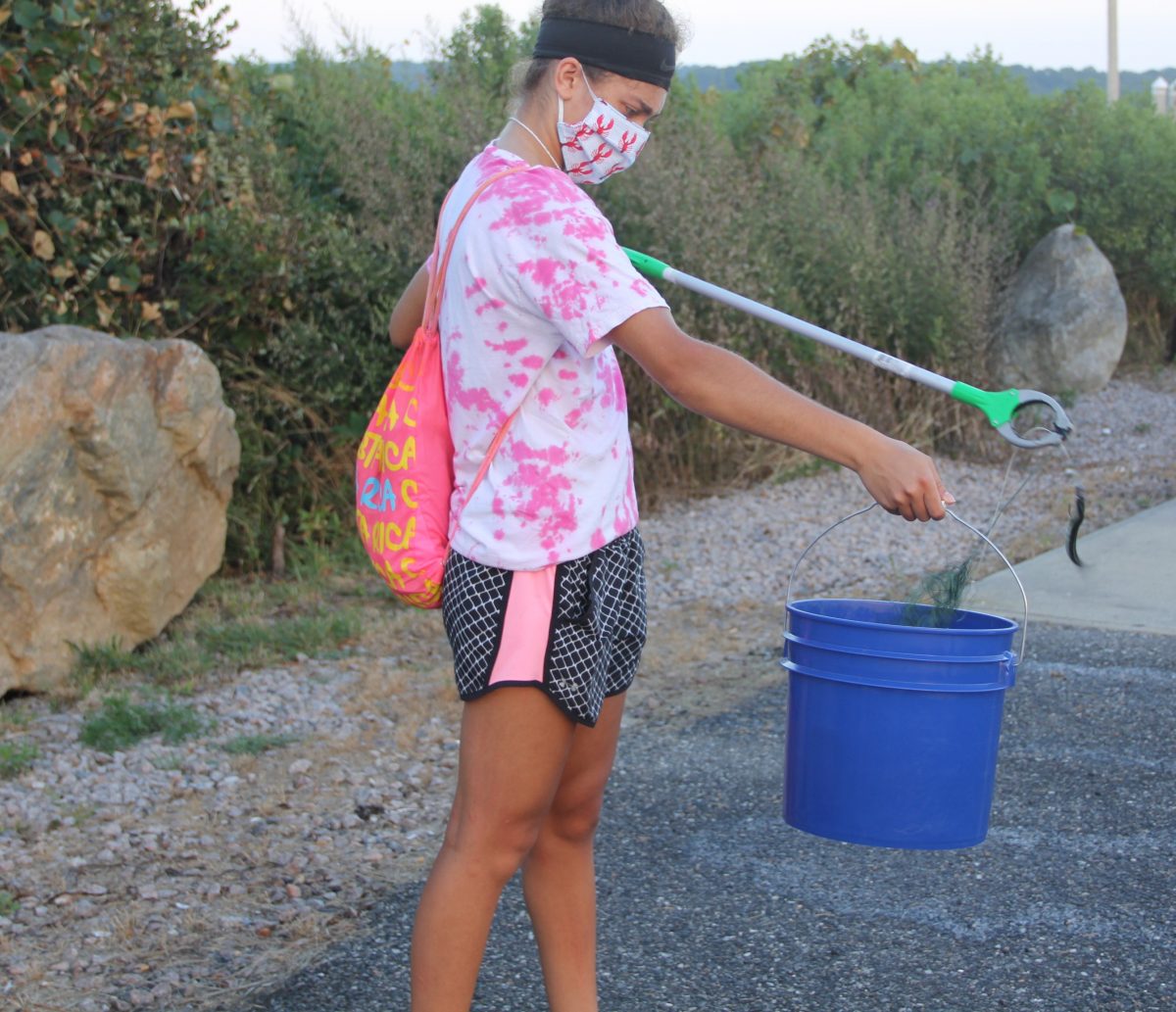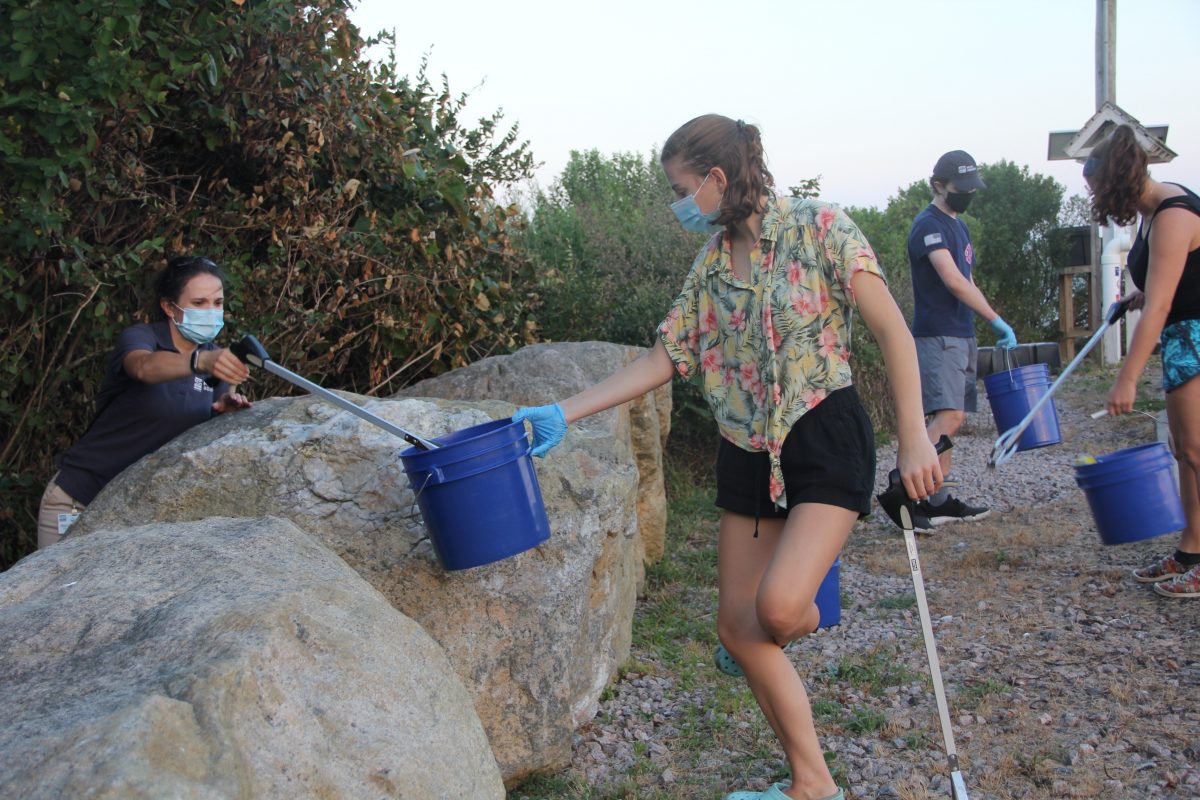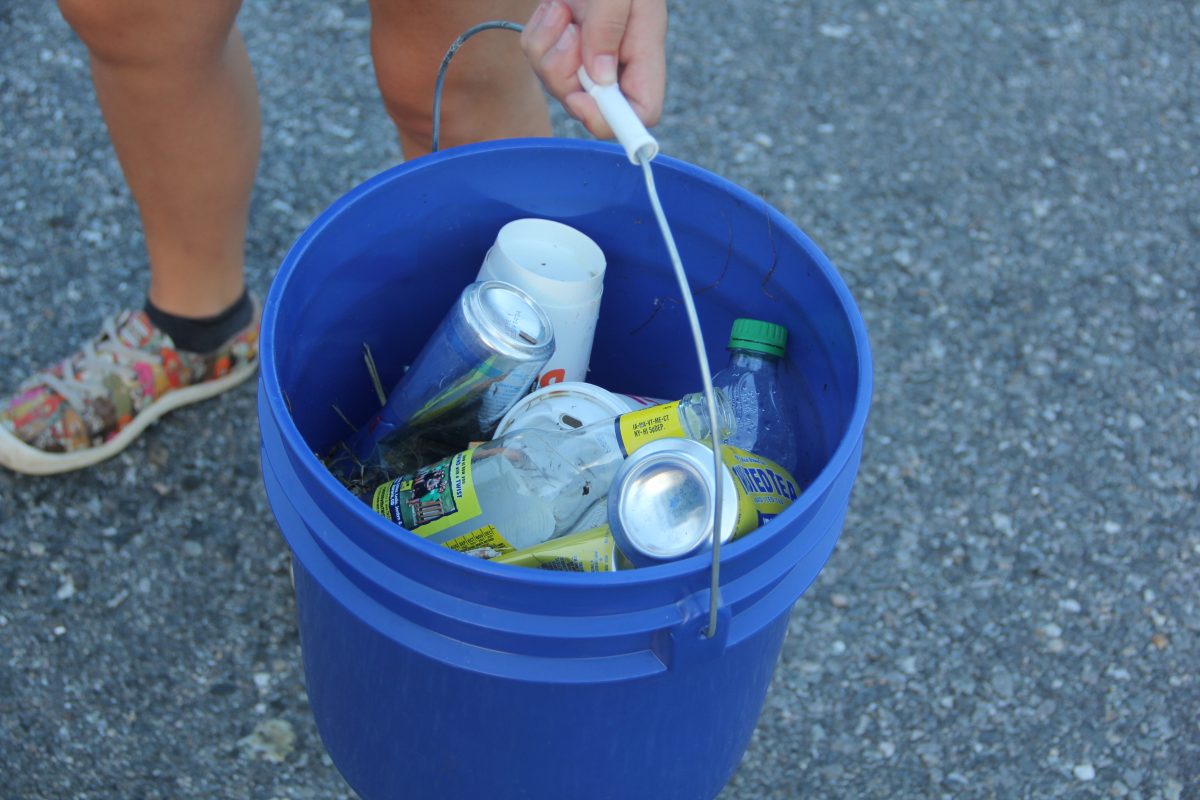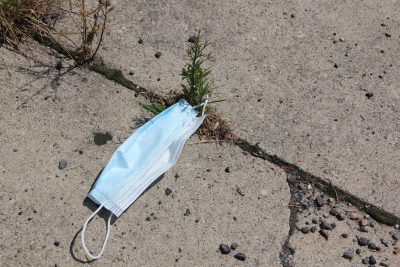
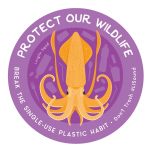 Story and photos by Judy Benson
Story and photos by Judy Benson
The new problem of discarded face masks, disposable gloves and other personal protective equipment ending up on sidewalks, parks and other outdoor spaces instead of in the trash is one of the focuses of this year’s #DontTrashLISound social media campaign.
Now it its fourth year, the campaign is a partnership of the Long Island Sound Study, Connecticut Sea Grant, 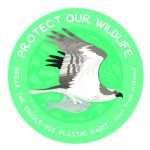 Mystic Aquarium and other groups. Starting Aug. 3 and running for a month, it features social media posts on Facebook, Instagram and Twitter and a new set of popular “Protect Our Wildlife” stickers that are being given through various venues.
Mystic Aquarium and other groups. Starting Aug. 3 and running for a month, it features social media posts on Facebook, Instagram and Twitter and a new set of popular “Protect Our Wildlife” stickers that are being given through various venues.
This year’s campaign builds on efforts over the last three years to encourage the public to be good stewards of the Sound by reducing single-use plastics and picking 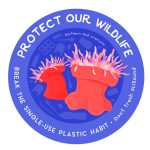 up trash on beaches that degrades the estuary for people and wildlife both. PPEs that end up on the ground instead of in the garbage can are likely to end up in streams, rivers and eventually the Sound. This problem was highlighted in two op-ed articles by CT Sea Grant Communications Coordinator Judy Benson.
up trash on beaches that degrades the estuary for people and wildlife both. PPEs that end up on the ground instead of in the garbage can are likely to end up in streams, rivers and eventually the Sound. This problem was highlighted in two op-ed articles by CT Sea Grant Communications Coordinator Judy Benson.
One was published in Connecticut Hearst newspapers on July 31. Read the article here.
The second was published in The Day on Aug. 9. Read the article here.
To learn more about the #DontTrashLISound campaign, visit: https://longislandsoundstudy.net/2020/08/summer-donttrashlisound-social-media-campaign-starts-aug-3/.
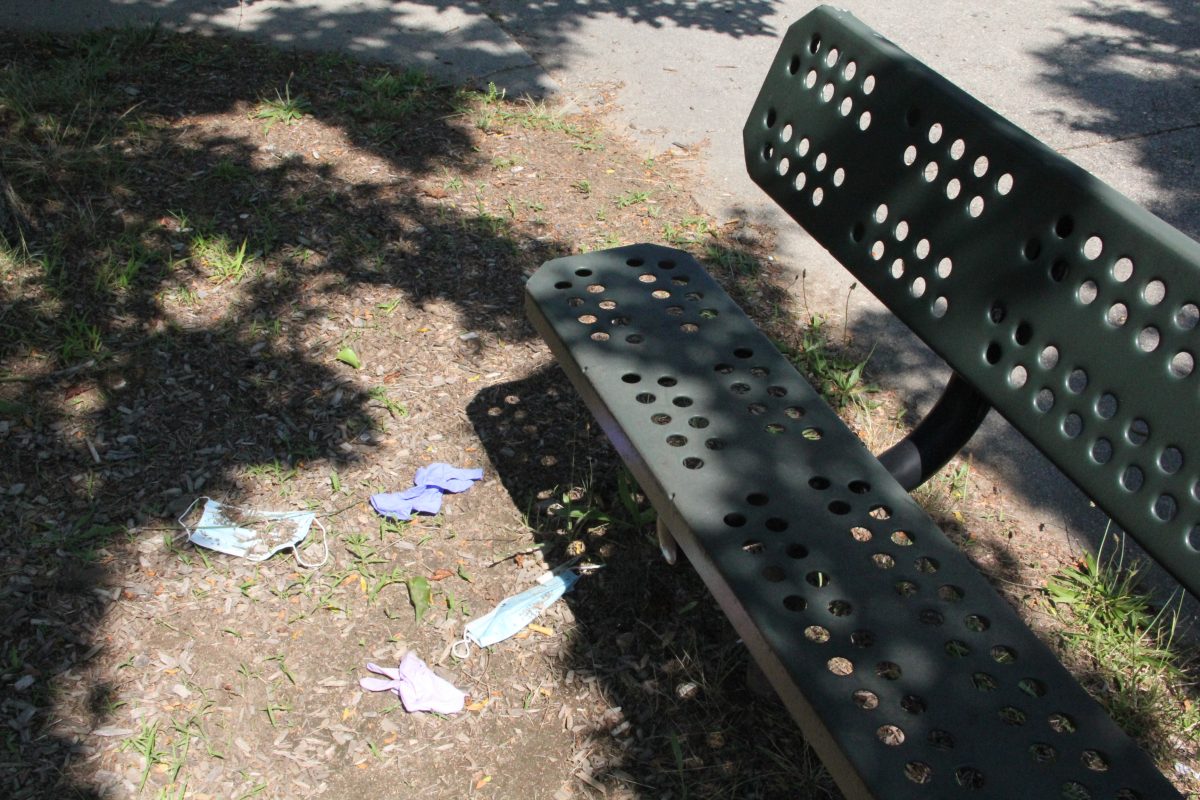
On Aug. 10, six members of Mystic Aquarium’s Youth Conservation Corps picked up trash at Barn Island Wildlife Management Area in Stonington as part of the campaign. During about two hours of collecting trash on a marsh area and at Barn Island’s busy boat launch, they filled their buckets with empty plastic bottles and cans, discarded fishing line, Styrofoam cups and many other items. The group was led by Mary Ellen Mateleska, director of education and conservation at the aquarium.
